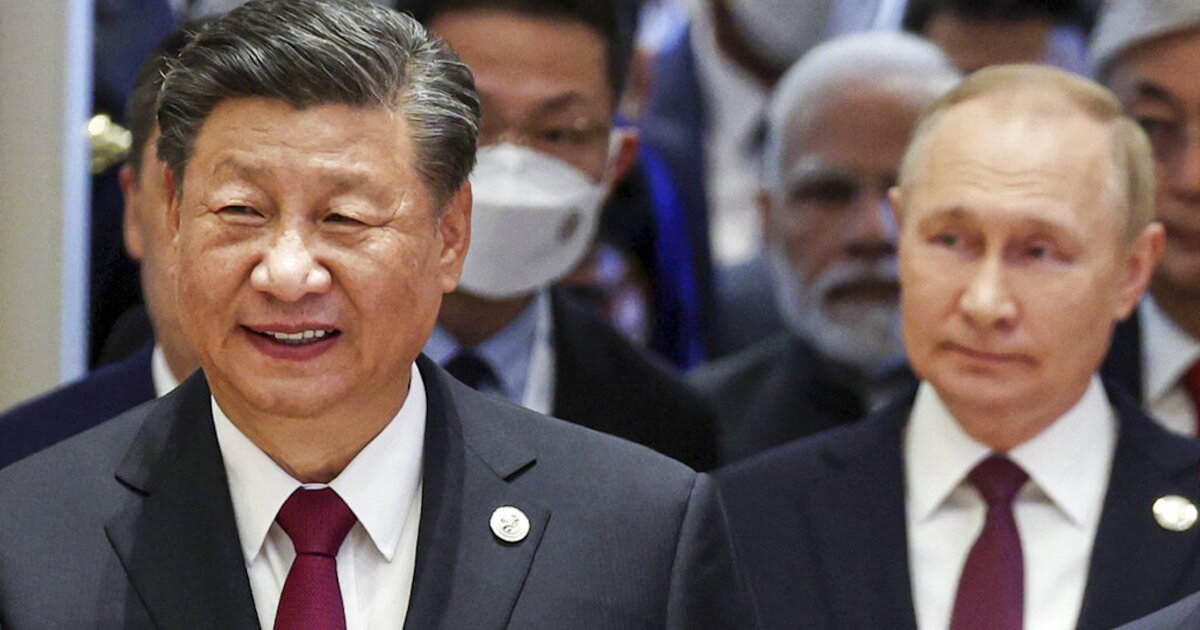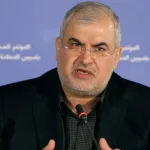

China called for a ceasefire in Ukraine while unveiling a Moscow-friendly peace plan on Friday as part of a larger effort to defend Beijing’s claims of neutrality in Russia’s war amid increased pressure from the West.
The 12 point proposal, released by China’s Foreign Ministry, mostly reiterated the country’s long-standing positions without making new diplomatic or policy suggestions. In addition to the ceasefire, which would freeze Russian troops currently occupying Ukrainian territory in place, the plan also urged an immediate end to all unilateral sanctions not endorsed by the United Nations’ Security Council, where Moscow has veto power.
CHINA WOULD SEND ARMS TO RUSSIA ‘AT THEIR OWN PERIL,’ STATE DEPARTMENT SAYS
The missive, which was swiftly rebuked by Western leaders as unserious, was essentially a formal pronouncement of Beijing’s posture that the U.S. and European allies are failing to “prevent the crisis from deteriorating further.”
“All parties should support Russia and Ukraine in working in the same direction and resuming direct dialogue as quickly as possible, so as to gradually de-escalate the situation and ultimately reach a comprehensive cease-fire,” the Foreign Ministry said in the plan.
While not criticizing Russia directly, the proposal condemned certain military tactics that have only been deployed by Russian forces, such as blocking grain exports from Ukraine and endangering nuclear power plants. The plan also urged a cessation of any actions that would harm the stability of industrial and supply chains and reiterated its opposition to the use of nuclear weapons.
“All parties should earnestly maintain the existing world economic system and oppose using the world economy as a tool or weapon for political purposes,” the plan says. “Joint efforts are needed to mitigate the spillovers of the crisis and prevent it from disrupting international cooperation in energy, finance, food trade and transportation and undermining the global economic recovery.”
U.S. National Security Adviser Jake Sullivan dismissed the proposal while speaking to CNN on Friday, arguing that the plan should have ended after the first bullet point, which calls for “respecting the sovereignty of all countries.”
“This war could end tomorrow, if Russia stopped attacking Ukraine and withdrew its forces,” he told the network.
NATO Secretary General Jens Stoltenberg said Friday that “China doesn’t have much credibility” to broker a peace deal given its response to the war thus far.
Ukrainian President Volodymyr Zelensky had a slightly less abrasive reaction, which is in line with his general effort to avoid isolating Beijing to the point that they arm Russia.
“I believe that the fact that China started talking about Ukraine is not bad,” Zelensky said at a Friday news conference when asked about the plan. “But the question is what follows the words. The question is in the steps and where they will lead to.”
“Our task is to gather everyone to isolate the one,” he continued, expressing hope that Chinese involvement in the conflict could possibly lead to isolating Russia. Zelensky also revealed that he wanted to meet with Chinese President Xi Jinping, saying, “I believe that it will benefit our countries and the security of the world.”
China has spent much of the last year attempting to present itself as a neutral peace broker in the Russia-Ukraine war while maintaining its “no limits” partnership with Moscow. Beijing’s efforts to perform that delicate balancing act has only caused further friction with the West.
China was one of 32 countries on Thursday that abstained from a U.N. vote calling on Russian forces to immediately withdraw from Ukraine. On Wednesday, Russian President Vladimir Putin said that Xi had “agreed” to a meeting in Moscow. That summit is expected to take place in the coming months.
CLICK HERE TO READ MORE FROM THE WASHINGTON EXAMINER
U.S. officials also said this week that Xi had yet to decide whether to approve the Kremlin’s request for weapons to use against Ukraine, something the U.S. State Department cautioned against.
“Our message to the [People’s Republic of China] has been consistent: They would decide to provide lethal assistance or to provide systematic assistance to Russia in its sanctions evasion at their own peril,” State Department spokesman Ned Price told reporters Thursday. “It would come with costs and consequences from the United States, from the international community.”






